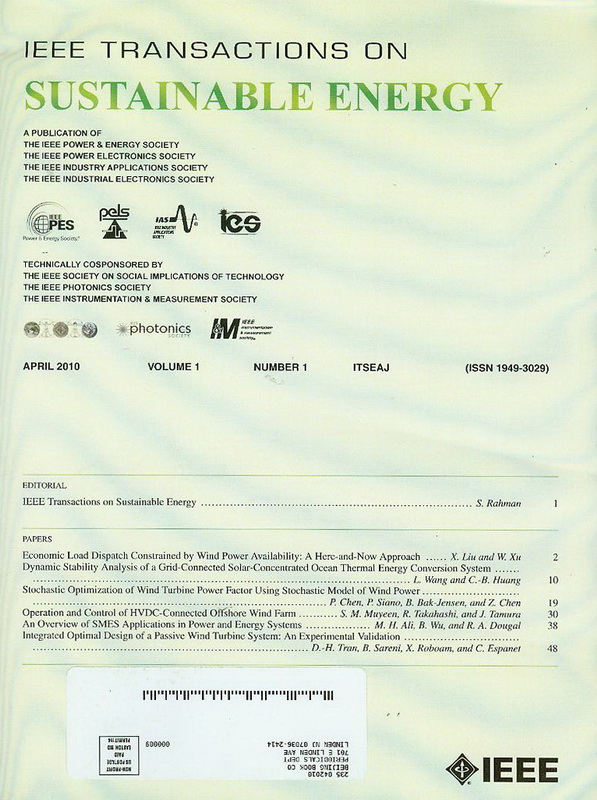波浪能转换器强化学习控制的设计与水槽测试
IF 8.6
1区 工程技术
Q1 ENERGY & FUELS
引用次数: 0
摘要
本文介绍了一种利用强化学习(RL)的无模型控制策略,以提高点吸收式波能转换器(WEC)的发电量。基于模型的方法可能会因建模错误(如固有的库仑型摩擦)而导致控制性能下降,而基于 RL 的方法则非常适合系统动态复杂或未知的波能转换器环境。其优势在于能够从与环境的相互作用中学习,从而避免了精确模型的必要性。为提高发电控制性能,建立了面向控制的损耗模型,并在奖励函数中引入了力惩罚项,以避免 WEC 系统在高损耗、低效率区域运行。为了进一步消除对波浪信息的依赖并提高适用性,对每个状态特征对训练结果的贡献进行了分析,并开发了一种考虑损耗且与波浪信息无关的基于 RL 的控制方案。基于 RL 的控制器在波浪槽实验中的点吸收式风力发电原型上得到了进一步验证,证明了其在规则波浪和不规则波浪中的有效实施和值得称赞的性能。本文章由计算机程序翻译,如有差异,请以英文原文为准。
Design and Tank Testing of Reinforcement Learning Control for Wave Energy Converters
This paper introduces a model-free control strategy utilizing reinforcement learning (RL) to improve the electrical power generation of a point absorber wave energy converter (WEC). While model-based methods may suffer from control performance degradation due to modeling errors, such as inherent Coulomb-type friction, RL-based approaches are well-suited for the WEC environment, where system dynamics are complex or unknown. The strength lies in their ability to learn from interactions with the environment, bypassing the necessity for precise models. To enhance the control performance in electrical power generation, a control-oriented loss model is established, and a force penalty term is introduced into the reward function to avoid the WEC system operating in high-loss, low-efficiency regions. To further eliminate the reliance on wave information and improve applicability, an analysis is conducted to examine the contribution of each state feature to the training outcomes and a loss-considering and wave information-independent RL-based control scheme is developed. The RL-based controller is further validated on a point absorber WEC prototype in the wave tank experiment, demonstrating effective implementation and commendable performance in both regular and irregular waves.
求助全文
通过发布文献求助,成功后即可免费获取论文全文。
去求助
来源期刊

IEEE Transactions on Sustainable Energy
ENERGY & FUELS-ENGINEERING, ELECTRICAL & ELECTRONIC
CiteScore
21.40
自引率
5.70%
发文量
215
审稿时长
5 months
期刊介绍:
The IEEE Transactions on Sustainable Energy serves as a pivotal platform for sharing groundbreaking research findings on sustainable energy systems, with a focus on their seamless integration into power transmission and/or distribution grids. The journal showcases original research spanning the design, implementation, grid-integration, and control of sustainable energy technologies and systems. Additionally, the Transactions warmly welcomes manuscripts addressing the design, implementation, and evaluation of power systems influenced by sustainable energy systems and devices.
 求助内容:
求助内容: 应助结果提醒方式:
应助结果提醒方式:


